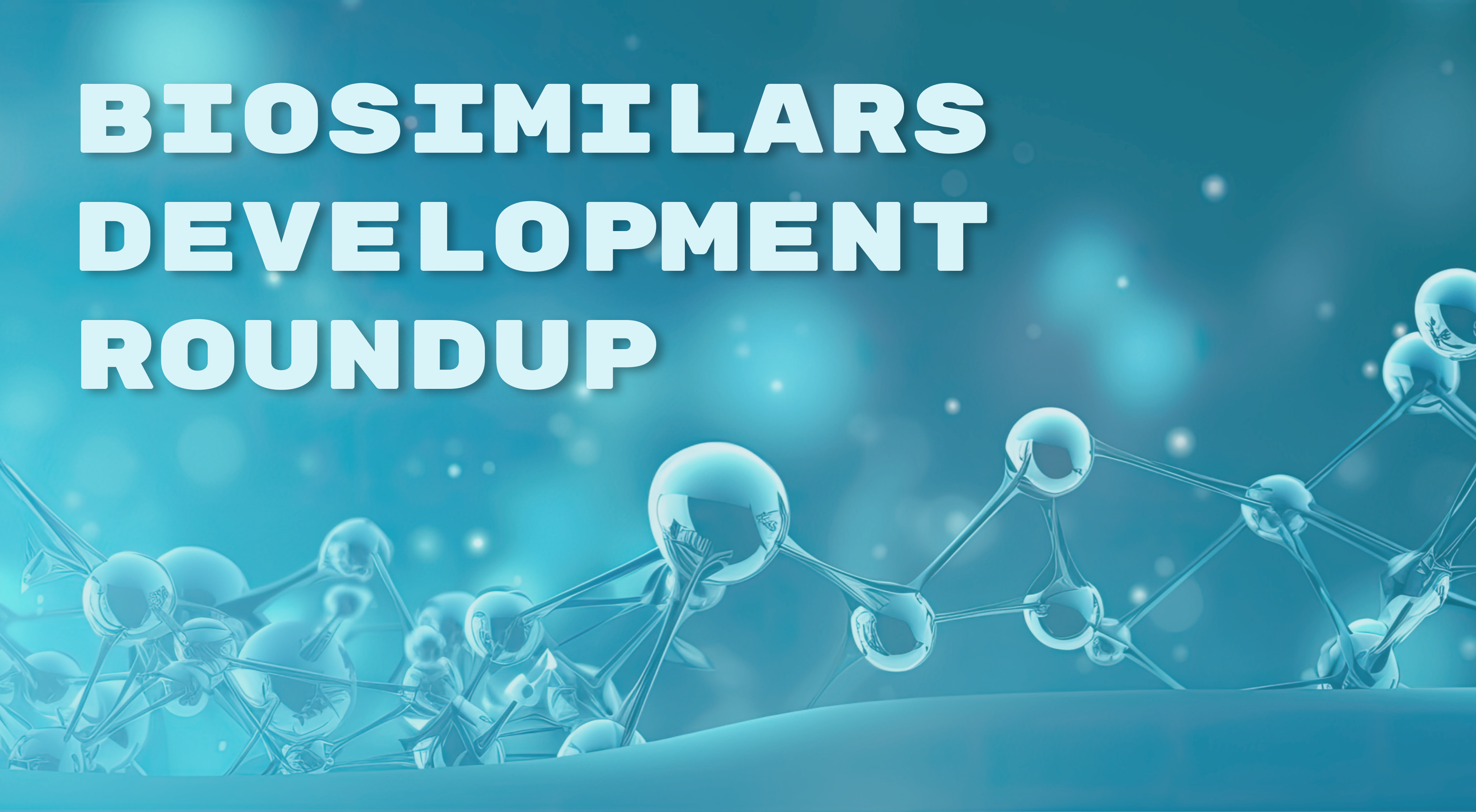- Bone Health
- Immunology
- Hematology
- Respiratory
- Dermatology
- Diabetes
- Gastroenterology
- Neurology
- Oncology
- Ophthalmology
- Rare Disease
- Rheumatology
Biosimilars Development Roundup: October 2024
In October, the GRx+Biosims conference included discussions on data transparency, artificial intelligence, and collaboration to enhance the global supply chain for biosimilars and generic drugs, as well as the evolving requirements for biosimilar devices.
In October, the GRx+Biosims conference included discussions on data transparency, artificial intelligence (AI), and collaboration to enhance the global supply chain for biosimilars and generic drugs, as well as the evolving requirements for biosimilar devices.

GRx+Biosims and Biosimilar Sustainability
At the GRx+Biosims conference, FDA Commissioner Robert Califf, MD, emphasized the urgent need for data transparency in the global supply chain and the crucial roles of collaboration and artificial intelligence (AI) in ensuring the resilience of biosimilar and generic drug production.1 He noted that recent disruptions caused by hurricanes have revealed critical vulnerabilities in the supply chain, particularly concerning essential supplies like saline solutions, highlighting the importance of having robust preparedness measures in place.
Califf also advocated for a fair pricing structure to sustain the industry, arguing that current pricing models are often inadequate to support the infrastructure needed for a resilient supply chain. He criticized the biopharmaceutical industry's reluctance to share vital supply chain data, stating that transparency and cooperation are essential for enhancing the robustness of the system. By leveraging AI and fostering greater collaboration among stakeholders, Califf believes it is possible to improve the preparedness and resilience of the supply chain.
Additionally, a panel of industry experts and FDA officials discussed the evolving device requirements for biosimilars and interchangeable biosimilars.2 They highlighted new approaches to comparative human factors studies, regulatory challenges, and alternative validation methods. The panel emphasized the importance of risk analysis, human factors studies, and alternative validation strategies to streamline regulatory approval while ensuring patient safety and efficacy. Insights from this discussion are expected to influence future guidance on biosimilar device requirements.
A fireside chat with Sarah Yim, MD, director of the FDA’s Office of Therapeutic Biologics and Biosimilars, emphasized the need to streamline biosimilar development and enhance industry collaboration.3 The discussion highlighted the critical role of education in building trust and promoting adoption, while also addressing the regulatory journey of biosimilars and exploring key legislative and industry dynamics shaping their future. The conversation also included a proposal to eliminate the distinction between biosimilars and interchangeable products, aiming to simplify the regulatory process and reduce barriers for developers while ensuring patient safety and product efficacy.
Lastly, industry leaders and regulatory experts emphasized the urgent need to unify global standards and simplify the biosimilar development process.4 They discussed recent advancements and the necessity for greater collaboration between manufacturers and regulatory agencies. Key topics included the removal of animal toxicology testing, improvements in interchangeability status, and the potential for reducing routine requirements for clinical efficacy studies. The panelists highlighted the importance of global harmonization and the role of international regulatory experts in creating a streamlined, modern bioscience pathway.
IQVIA Insights
An IQVIA report explores the challenges and potential solutions for sustaining the adoption of infused biosimilars in the US.5 It identifies rebate walls and current reimbursement policies as significant barriers to biosimilar uptake, resulting in a landscape where these treatments struggle to gain acceptance among health care providers.
To create a more sustainable environment, the report recommends establishing a minimum reimbursement rate for biosimilars and introducing incentives for their use. These proposed changes aim to enhance competition and lower health care costs, ultimately ensuring long-term benefits for patients, health care providers, and payers. By addressing these obstacles, the report envisions a future in which biosimilars can play a crucial role in the health care system.
During a recent IQVIA webinar, experts discussed critical regulatory aspects related to generics and biosimilars.6 They highlighted strategies for navigating complex approval processes, emphasized the importance of understanding local market dynamics, and explored the role of technology in improving submission efficiency. The webinar also addressed key legislation, including the Hatch-Waxman Act of 1984 and the Biologics Price Competition and Innovation Act of 2010, which established the regulatory frameworks for generics and biosimilars in the US.
Keith McDonald, senior director of regulatory affairs at IQVIA, shared insights into global development strategies, emphasizing the importance of chemistry, manufacturing, and control data in the approval process. Ankit Tyagi, associate director of regulatory affairs, focused on the operational aspects of expanding into emerging markets, stressing the need for a comprehensive understanding of local market dynamics and regulatory requirements. Overall, the webinar underscored the ongoing efforts to build confidence in biosimilars and highlighted the critical role of clinical studies in demonstrating their safety and efficacy.
References
1. Jeremias S. Strengthening the supply chain: key insights from FDA commissioner Dr Robert Califf. The Center for Biosimilars®. October 25, 2024. Accessed October 31, 2024. https://www.centerforbiosimilars.com/view/strengthening-the-supply-chain-key-insights-from-fda-commissioner-robert-califf
2. Jeremias S. FDA and industry experts unpack biosimilar device requirements. The Center for Biosimilars. October 23, 2024. Accessed October 31, 2024. https://www.centerforbiosimilars.com/view/fda-and-industry-experts-unpack-biosimilar-device-requirements
3. Jeremias S. Calling for Unified Biosimilar Standards, Stronger Education at GRx+Biosims. The Center for Biosimilars. October 23, 2024. Accessed October 31, 2024. https://www.centerforbiosimilars.com/view/calling-for-unified-biosimilar-standards-stronger-education-at-grx-biosims
4. Jeremias S. Unifying standards: the need for streamlined biosimilar development. The Center for Biosimilars. October 22, 2024. Accessed October 31, 2024. https://www.centerforbiosimilars.com/view/unifying-standards-the-need-for-streamlined-biosimilar-development
5. Jeremias S. Enhancing Adoption of Infused Biosimilars for a Sustainable Future. The Center for Biosimilars. October 30, 2024. Accessed October 31, 2024. https://www.centerforbiosimilars.com/view/enhancing-adoption-of-infused-biosimilars-for-a-sustainable-future
6. Jeremias S. IQVIA webinar: enhancing regulatory strategies for biosimilars and generics. The Center for Biosimilars. October 14, 2024. Accessed October 31, 2024. https://www.centerforbiosimilars.com/view/iqvia-webinar-enhancing-regulatory-strategies-for-biosimilars-and-generics
Newsletter
Where clinical, regulatory, and economic perspectives converge—sign up for Center for Biosimilars® emails to get expert insights on emerging treatment paradigms, biosimilar policy, and real-world outcomes that shape patient care.
